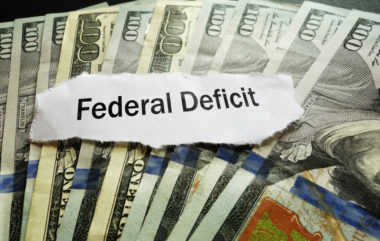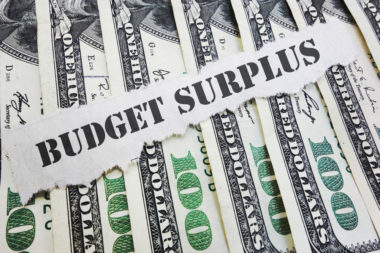For many of us, our parents helped us take care of our bills when we first moved out or attended college. Our bills stayed in our parent’s name, and that’s just the way it’s been ever since. However, if you’re thinking about making some very important financial decisions for yourself in the somewhat near future, you’ll need to understand how taking control of your own finances can prepare you for the future in a way that no one else can do for you. Let’s take a look at what being hands-on with your money looks like, how to create a budget that works for you, and how to build your credit in the process.
How to Be Hands-On With Your Finances
Part of building great financial habits and a solid credit score starts with being hands-on about your finances. Making the decision to pay your own bills now can help you learn crucial financial skills that you’ll hold with you for the rest of your life. In addition, being financially healthy means that you always know where your money is going. You should know what your bills are, when they are due, and how it can affect you if you have a late payment.
It might feel like a daunting task when you first get started, but you’ll thank yourself after you have it all laid out on the table and you understand where your money is going and how it should be spent. If you’re intimidated, try and start small and work a couple of small bills into your monthly plan. The month after that add one or two more, and so on until you’ve got everything under your own name, being paid from your own wallet.
As you go through this process, take time to sit down with your finances and get to know them. Make a balance sheet of your income, where you’re currently spending, and where you’re currently saving. Examine your bank statement and find trends in your spending. For example, are you spending too much on going out to eat five nights per week. These are the kinds of things you’ll be able to catch, adjust on your balance sheet, and reap the benefits of extra savings.
The Importance of a Budget
Budgeting doesn’t simply mean limiting yourself and the amount of money that you can spend. Budgeting is about smart spending and smart saving. Being hands-on with your finances allows you to you understand where you can afford to spend a little bit more and where you can save. You’ll have a better understanding of what is financially important to you and what your financial goals are. Setting a budget will only help you achieve these goals.
In addition, setting yourself up to be prepared for anything that could happen in the future is a smart plan. Smart saving means that you are saving with a well thought out goal in mind. For example, you could be saving for retirement, an emergency fund, a vacation, or for down payments in the future. No matter what your goal is, being prepared for where life could take you in the future is a good sign of a financially independent and confident individual.
Once you have this kind of hold on your finances, you won’t have to flounder in the face of a financial crisis any longer because you’ll have already prepared that emergency fund. Or when you decide it’s time to make it to one of your financial milestones, you’ll already have a down payment saved up and ready to go just for this occasion. You’ll know that you have some financial security backing you up, but there’s another very important piece of the financial health puzzle. You can also use your bills to another advantage – building your credit score.
Improve Your Credit By Paying Your Bills
Having good credit is just as important as saving money for your next financial hurdle. Being approved for any loan (student loans, credit cards, car loans, and home loans) means that you have to have a trustworthy credit score before the bank opens your line of credit. Paying your bills is a great way to get a handle on your finances, but it won’t necessarily help you to improve your credit. However, there are ways that you can turn this around and make your bills work for you.
Once you start a budget for yourself, work it for a while, and feel comfortable with it, I suggest getting a low limit credit card. A good place to start is a secured credit card. You can then pay one or more of your bills with the credit card and then pay off your balance on the credit card. Doing so will send positive payment information into your credit history, which will help to boost your credit score over time.
Now if you repeat this task many times over the course of six months, one year, or maybe even two years, you’ll see a steady increase to your credit report. That is good news for you, because having a solid credit score is the other half to your down payment that you have saved. As long as you already have all of your bills worked into your budget, you won’t be missing a dime using your credit card in this way, and you’ll be building good credit at the same time — it’s a win-win.
As you can see, being financially independent and paying your own bills is a way to take control and remove stress from your life, not add to it. Taking that leap can be intimidating, but starting small and working your way up to where you want to be is a great way to begin your own financially independent path. On your journey, you’ll learn that you can prepare yourself for any financial milestones that are important to you and, if you use it the right way, you can utilize your credit card to pay your bills and build a healthy credit score during the process.
Looking for more information about your credit score? Visit our credit score resource and learning center for more tips and guides.
Image Source: https://depositphotos.com/





